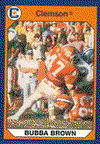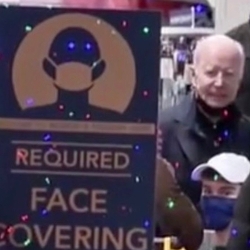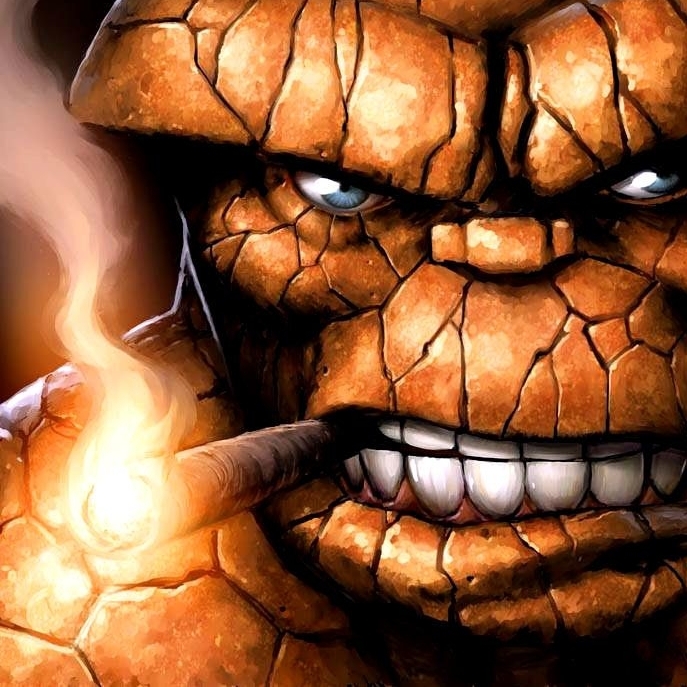|
Emmert, NIL, SCOTUS and Kavanaugh
storage
This topic has been archived - replies are not allowed.
|
Replies: 10
| visibility 1704
|
CU Guru [1237]
TigerPulse: 100%
27
|
Emmert, NIL, SCOTUS and Kavanaugh
Apr 27, 2022, 11:03 AM
|
|
I encourage everyone to at least read Judge Kavanaugh's (Conservative) concurring opinion, which shows his total and utter disdain for the NCAA "business model". The SCOTUS decided this issue 9-0. Emmert actually "tried" to preserve, albeit ineffectively, the status quo. In my opinion, there was no way to stop this freight train.
https://www.supremecourt.gov/opinions/20pdf/20-512_gfbh.pdf
JUSTICE KAVANAUGH, concurring.
The NCAA has long restricted the compensation and benefits that student athletes may receive. And with surprising success, the NCAA has long shielded its compensation rules from ordinary antitrust scrutiny. Today, however, the Court holds that the NCAA has violated the antitrust laws. The Court’s decision marks an important and overdue course correction, and I join the Court’s excellent opinion in full.
But this case involves only a narrow subset of the NCAA’s compensation rules—namely, the rules restricting the education-related benefits that student athletes may receive, such as post-eligibility scholarships at graduate or vocational schools. The rest of the NCAA’s compensation rules are not at issue here and therefore remain on the books. Those remaining compensation rules generally restrict student athletes from receiving compensation or benefits from their colleges for playing sports. And those rules have also historically restricted student athletes from receiving money from endorsement deals and the like.
I add this concurring opinion to underscore that the NCAA’s remaining compensation rules also raise serious questions under the antitrust laws. Three points warrant emphasis.
First, the Court does not address the legality of the NCAA’s remaining compensation rules. As the Court says, “the student-athletes do not renew their across-the-board challenge to the NCAA’s compensation restrictions. Accordingly, we do not pass on the rules that remain in place or the district court’s judgment upholding them. Our review is confined to those restrictions now enjoined.” Ante, at 14.
Second, although the Court does not weigh in on the ultimate legality of the NCAA’s remaining compensation rules, the Court’s decision establishes how any such rules should be analyzed going forward. After today’s decision, the NCAA’s remaining compensation rules should receive ordinary “rule of reason” scrutiny under the antitrust laws. The Court makes clear that the decades-old “stray comments” about college sports and amateurism made in National Collegiate Athletic Assn. v. Board of Regents of Univ. of Okla., 468 U. S. 85 (1984), were dicta and have no bearing on whether the NCAA’s current compensation rules are lawful. Ante, at 21. And the Court stresses that the NCAA is not otherwise entitled to an exemption from the antitrust laws. Ante, at 23–24; see also Radovich v. National Football League, 352 U. S. 445, 449–452 (1957). As a result, absent legislation or a negotiated agreement between the NCAA and the student athletes, the NCAA’s remaining compensation rules should be subject to ordinary rule of reason scrutiny. See ante, at 18–19.
Third, there are serious questions whether the NCAA’s remaining compensation rules can pass muster under ordinary rule of reason scrutiny. Under the rule of reason, the NCAA must supply a legally valid procompetitive justification for its remaining compensation rules. As I see it, however, the NCAA may lack such a justification.
The NCAA acknowledges that it controls the market for college athletes. The NCAA concedes that its compensation rules set the price of student athlete labor at a below-market rate. And the NCAA recognizes that student athletes currently have no meaningful ability to negotiate with the NCAA over the compensation rules.
The NCAA nonetheless asserts that its compensation rules are procompetitive because those rules help define the product of college sports. Specifically, the NCAA says that colleges may decline to pay student athletes because the defining feature of college sports, according to the NCAA, is that the student athletes are not paid.
In my view, that argument is circular and unpersuasive. The NCAA couches its arguments for not paying student athletes in innocuous labels. But the labels cannot disguise the reality: The NCAA’s business model would be flatly illegal in almost any other industry in America. All of the restaurants in a region cannot come together to cut cooks’ wages on the theory that “customers prefer” to eat food from low-paid cooks. Law firms cannot conspire to cabin lawyers’ salaries in the name of providing legal services out of a “love of the law.” Hospitals cannot agree to cap nurses’ income in order to create a “purer” form of helping the sick. News organizations cannot join forces to curtail pay to reporters to preserve a “tradition” of public-minded journalism. Movie studios cannot collude to slash benefits to camera crews to kindle a “spirit of amateurism” in Hollywood.
Price-fixing labor is price-fixing labor. And price-fixing labor is ordinarily a textbook antitrust problem because it extinguishes the free market in which individuals can otherwise obtain fair compensation for their work. See, e.g., Texaco Inc. v. Dagher, 547 U. S. 1, 5 (2006). Businesses like the NCAA cannot avoid the consequences of price-fixing labor by incorporating price-fixed labor into the definition of the product. Or to put it in more doctrinal terms, a monopsony cannot launder its price-fixing of labor by calling it product definition.
The bottom line is that the NCAA and its member colleges are suppressing the pay of student athletes who collectively generate billions of dollars in revenues for colleges every year. Those enormous sums of money flow to seemingly everyone except the student athletes. College presidents, athletic directors, coaches, conference commissioners, and NCAA executives take in six- and seven-figure salaries. Colleges build lavish new facilities. But the student athletes who generate the revenues, many of whom are African American and from lower-income backgrounds, end up with little or nothing. See Brief for African American Antitrust Lawyers as Amici Curiae 13–17.
Everyone agrees that the NCAA can require student athletes to be enrolled students in good standing. But the NCAA’s business model of using unpaid student athletes to generate billions of dollars in revenue for the colleges raises serious questions under the antitrust laws. In particular, it is highly questionable whether the NCAA and its member colleges can justify not paying student athletes a fair share of the revenues on the circular theory that the defining characteristic of college sports is that the colleges do not pay student athletes. And if that asserted justification is unavailing, it is not clear how the NCAA can legally defend its remaining compensation rules.
If it turns out that some or all of the NCAA’s remaining compensation rules violate the antitrust laws, some difficult policy and practical questions would undoubtedly ensue. Among them: How would paying greater compensation to student athletes affect non-revenue-raising sports? Could student athletes in some sports but not others receive compensation? How would any compensation regime comply with Title IX? If paying student athletes requires something like a salary cap in some sports in order to preserve competitive balance, how would that cap be administered? And given that there are now about 180,000 Division I student athletes, what is a financially sustainable way of fairly compensating some or all of those student athletes?
Of course, those difficult questions could be resolved in ways other than litigation. Legislation would be one option. Or colleges and student athletes could potentially engage in collective bargaining (or seek some other negotiated agreement) to provide student athletes a fairer share of the revenues that they generate for their colleges, akin to how professional football and basketball players have negotiated for a share of league revenues. Cf. Brown v. Pro Football, Inc., 518 U. S. 231, 235–237 (1996); Wood v. National Basketball Assn., 809 F. 2d 954, 958–963 (CA2 1987) (R. Winter, J.). Regardless of how those issues ultimately would be resolved, however, the NCAA’s current compensation regime raises serious questions under the antitrust laws.
To be sure, the NCAA and its member colleges maintain important traditions that have become part of the fabric of America—game days in Tuscaloosa and South Bend; the packed gyms in Storrs and Durham; the women’s and men’s lacrosse championships on Memorial Day weekend; track and field meets in Eugene; the spring softball and baseball World Series in Oklahoma City and Omaha; the list goes on. But those traditions alone cannot justify the NCAA’s decision to build a massive money-raising enterprise on the backs of student athletes who are not fairly compensated. Nowhere else in America can businesses get away with agreeing not to pay their workers a fair market rate on the theory that their product is defined by not paying their workers a fair market rate. And under ordinary principles of antitrust law, it is not evident why college sports should be any different. The NCAA is not above the law.
|
|
|
|
 |
Orange Immortal [67645]
TigerPulse: 100%
60
Posts: 24775
Joined: 2011
|
Re: Emmert, NIL, SCOTUS and Kavanaugh
Apr 27, 2022, 11:09 AM
|
|
Emmert should have had a backup plan, knowing that he was probably going to lose. FAIL.
|
|
|
|
|
 |
CU Guru [1237]
TigerPulse: 100%
27
|
Re: Emmert, NIL, SCOTUS and Kavanaugh
Apr 27, 2022, 11:17 AM
|
|
Perhaps, but if you read the full opinion, the court notes that the NCAA was slowly "increasing pay" over the years by offering athletes increased benefits. Imo this was their back up plan in hopes of keeping the athletes happy. They saw what was coming and tried to piece meal things, but, you're right, they failed.
|
|
|
|
|
 |
Letterman [265]
TigerPulse: 33%
14
|
Kavanaugh also likes beer.
Apr 27, 2022, 11:59 AM
|
|
"Yes, we drank beer. My friends and I. Boys and girls. Yes, we drank beer. I liked beer. Still like beer. We drank beer."
|
|
|
|
|
 |
Game Changer [1669]
TigerPulse: 97%
31
|
Re: Kavanaugh also likes beer.
Apr 27, 2022, 1:27 PM
|
|
Your pulse is sinking faster than Biden's Approval Ratings! Now do Sotamayor...
|
|
|
|
|
 |
Clemson Conqueror [11193]
TigerPulse: 73%
46
Posts: 11046
Joined: 2017
|
|
|
|
|
 |
Clemson Icon [26456]
TigerPulse: 100%
54
|
|
|
|
|
 |
All-In [10888]
TigerPulse: 60%
45
Posts: 13946
Joined: 2006
|
Re: Emmert, NIL, SCOTUS and Kavanaugh
Apr 27, 2022, 1:18 PM
|
|
Way too much to read but as far as NIL goes, there will not be any state or federal legislator that will look people in the eye and say that young men and women should be deprived their right to earn money. You cannot unring the bell once it has been rung.
|
|
|
|
|
 |
Tiger Spirit [9961]
TigerPulse: 100%
44
|
My dial-up internet doesn't keep me on-line long enough to
Apr 27, 2022, 2:18 PM
|
|
read.
Okay, I'm back.
OK. Clff
K. Cliffnotes!
|
|
|
|
|
 |
Tiger Spirit [9961]
TigerPulse: 100%
44
|
Please***
Apr 27, 2022, 2:19 PM
|
|
|
|
|
|
|
 |
CU Guru [1237]
TigerPulse: 100%
27
|
Re: My dial-up internet doesn't keep me on-line long enough to
Apr 28, 2022, 9:08 AM
[ in reply to My dial-up internet doesn't keep me on-line long enough to ] |
|
“Everyone agrees that the NCAA can require student athletes to be enrolled students in good standing. But the NCAA’s business model of using unpaid student athletes to generate billions of dollars in revenue for the colleges raises serious questions under the antitrust laws. In particular, it is highly questionable whether the NCAA and its member colleges can justify not paying student athletes a fair share of the revenues on the circular theory that the defining characteristic of college sports is that the colleges do not pay student athletes. And if that asserted justification is unavailing, it is not clear how the NCAA can legally defend its remaining compensation rules.”
Price-fixing labor is price-fixing labor. And price-fixing labor is ordinarily a textbook antitrust problem because it extinguishes the free market in which individuals can otherwise obtain fair compensation for their work. See, e.g., Texaco Inc. v. Dagher, 547 U. S. 1, 5 (2006). Businesses like the NCAA cannot avoid the consequences of price-fixing labor by incorporating price-fixed labor into the definition of the product….
I don’t think Kavanaugh is struggling with his opinion. 
And please don’t shoot the messanger ….
|
|
|
|
|
|
Replies: 10
| visibility 1704
|
|
|
|
 to award
the award.
to award
the award.










